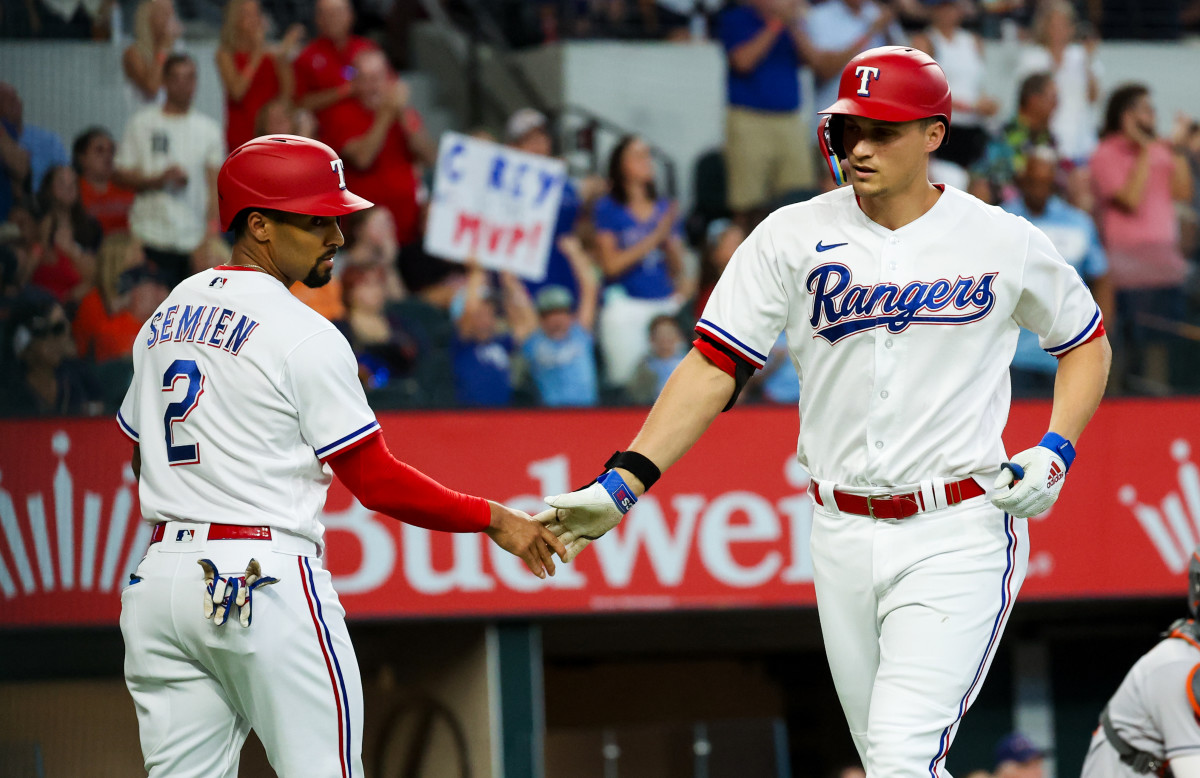Houston Astros vs Texas Rangers Match: Player Stats and Analysis
The rivalry between the Houston Astros and the Texas Rangers is one of the fiercest in Major League Baseball (MLB). Both teams have deep roots in Texas, and every time they face off, it’s more than just a game—it’s a battle for state supremacy.
Their latest encounter added another thrilling chapter to this ongoing rivalry. In this article, we’ll break down the key player stats and performance analysis, delving into how both teams fared, which players stood out, and what these results mean for their overall seasons.
Pre-game Expectations
Before we dive into the player stats and analysis, it’s important to note the context in which this match took place. Both the Houston Astros and the Texas Rangers entered this game in relatively strong form.
The Astros were looking to solidify their standing as one of the dominant forces in the American League (AL) West, while the Rangers were keen to prove they could hang with their in-state rivals and disrupt the Astros’ march toward playoff contention.
For the Astros, their core of seasoned veterans and young talents has been a strength throughout the season. Players like José Altuve, Yordan Álvarez, and Kyle Tucker were expected to lead the charge. The Rangers, meanwhile, were counting on their key players like Marcus Semien, Corey Seager, and Adolis García to put up a fight.

Houston Astros: Key Player Stats and Performance
The Astros have long been known for their balanced approach to the game, combining solid pitching with timely hitting. In this game, several players stood out, making significant contributions.
1. José Altuve (2B)
Altuve, the heart and soul of the Astros, continued to demonstrate why he’s one of the most reliable players in the league. He went 3-for-5 with two doubles and a crucial RBI that helped put the Astros in the lead.
Altuve’s ability to get on base consistently was a driving force behind the Astros’ offensive success. His quick bat speed and excellent eye at the plate allowed him to find gaps in the Rangers’ defense, particularly during key at-bats late in the game.
2. Yordan Álvarez (DH)
Álvarez has been a powerhouse for the Astros all season, and this game was no different. He crushed a home run in the third inning, a 450-foot bomb that showcased his raw power. In addition to his homer,
Álvarez was 2-for-4 with two RBIs. His ability to change the course of a game with one swing of the bat has made him a pivotal player for the Astros. His disciplined approach at the plate—laying off pitches outside the zone—keeps him a constant threat.
3. Framber Valdez (SP)
On the mound, Framber Valdez delivered a solid performance. He pitched 7 innings, allowing just 2 earned runs and striking out 8. Valdez’s sinker was working to perfection,
inducing several ground balls and keeping the Rangers’ hitters off balance. His ability to pitch deep into games while limiting damage has been a key factor in the Astros’ success this season.
4. Kyle Tucker (RF)
Kyle Tucker continues to be one of the most underrated players in the league. In this game, Tucker went 2-for-4 with a double and a stolen base. His combination of power and speed makes him a dual threat, and he’s often the spark that ignites the Astros’ offense.
Defensively, Tucker’s range in the outfield helped prevent a couple of extra-base hits from the Rangers, showing that his value extends beyond just his offense.
Texas Rangers: Key Player Stats and Performance
The Rangers came into this game with a lot of momentum, looking to knock off their in-state rivals. Despite their loss, several players showed why the Rangers are a team to watch, even if they came up short in this matchup.
1. Corey Seager (SS)
Corey Seager has been the Rangers’ offensive leader, and in this game, he once again displayed his hitting prowess. Seager went 3-for-4 with a home run and a double, driving in two of the Rangers’ three runs. His ability to hit for both average and power makes him one of the best shortstops in the league.
His performance in this game kept the Rangers within striking distance, but it wasn’t enough to overcome the Astros’ superior depth.
2. Marcus Semien (2B)
Marcus Semien, the Rangers’ second baseman, had a decent game, going 1-for-4 with a walk and a stolen base. While not a standout performance, Semien’s speed and defensive capabilities helped keep the Rangers competitive. His ability to turn double plays and cover a lot of ground defensively has been a major asset for the team.
3. Adolis García (RF)
Adolis García has been one of the Rangers’ most dynamic players, and he had a decent showing, going 2-for-4 with a stolen base. García’s speed on the basepaths is a constant threat, and he was able to put himself in scoring position several times. However, his aggressiveness at the plate—swinging at a few bad pitches—limited his overall impact in the game.
4. Jon Gray (SP)
Jon Gray started on the mound for the Rangers, but it was a rough outing for him. He lasted only 5 innings, giving up 4 earned runs on 7 hits. Gray struggled to locate his fastball, and the Astros’ hitters were able to take advantage of his mistakes, particularly Álvarez’s home run. Gray’s inability to go deep into the game put additional pressure on the Rangers’ bullpen, which eventually faltered late in the game.
Post-game Analysis: What It Means for Both Teams
For the Houston Astros, this victory over the Rangers was significant. Not only did it bolster their position in the AL West standings, but it also demonstrated the depth and balance of their roster. The combination of stellar pitching from Valdez and timely hitting from players like Altuve and Álvarez shows why the Astros remain one of the favorites to make a deep playoff run. Their ability to win both close games and blowouts highlights their versatility.

The Texas Rangers, despite the loss, can take some positives from the game. Corey Seager continues to be a bright spot, and players like García and Semien provide a solid foundation for the team moving forward. However, the performance of their pitching staff, particularly Jon Gray, raises concerns. The Rangers will need more consistency from their starters if they hope to compete with top-tier teams like the Astros.
Conclusion
The Houston Astros’ win over the Texas Rangers was a testament to their all-around team strength. From pitching to hitting to defense, the Astros demonstrated why they’re a force to be reckoned with.
The Rangers, though falling short, have the potential to be contenders but need to address their pitching issues. This matchup between these two Texas powerhouses once again delivered drama, excitement, and quality baseball—hallmarks of a great rivalry.
